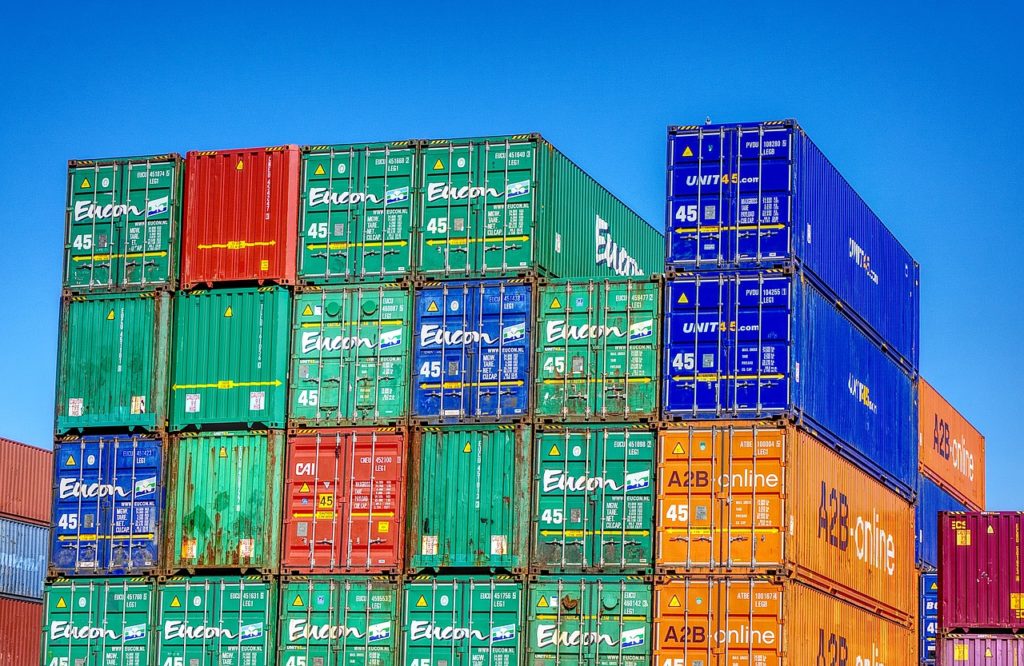In his Daily Market Notes report to investors, while commenting on the Supply Chain Myths, Louis Navellier wrote:
Q3 2021 hedge fund letters, conferences and more
On this day in 1987, the markets fell more than 22%. Fingers crossed.
Supply Chain Myths
For proof that the supply chain disruption is not damaging the economy much, look no further than Friday’s report that retail sales rose 0.7% in September – a huge positive surprise, since economists were expecting a 0.2% decline.
Apparently, economists were anticipating that retail sales would decline in September due to supply shortages, but since personal income is rising, consumers will continue to spend money, regardless of any shortages.
Our survey from this morning shows that a majority of retail investors do not favor giving the Internal Revenue Service a big war chest to collect more taxes. Even with large spending plans and historic deficits, taxpayers are resolute in their feelings about sending more money to the U.S. Treasury.
As a result of port bottlenecks and supply shortages, however, the International Monetary Fund (IMF) cut its global 2021 GDP forecast to 5.9% last Tuesday, down from 6% in its previous estimate. For 2022, the IMF is forecasting 4.9% global GDP growth.
Channeling Taiwan
Order backlogs for major economies – like China, Germany, and the U.S. – remain very high, complicated by the Taiwan semiconductor chip shortage. On CNBC Squawk Box last Tuesday, Kyle Bass, who is the founder of Hayman Capital Management, said that it is “inevitable that Taiwan’s days are numbered.”
I disagree. I get a lot of questions about what is going to happen “when China takes over Taiwan” after tormenting the island nation an untold number of times with the Chinese air force invading Taiwanese airspace. China will not harm Taiwan’s infrastructure, since they need semiconductor chips, too! If China did invade Taiwan, they would face a possible military reprisal as well as higher tariffs and sanctions from many other countries, so I respectively disagree with Kyle Bass.
Since the Biden administration did not lift or modify the Trump tariffs on China, if China invaded Taiwan, they not only risk a military reprisal, but also potentially higher tariffs; so Taiwanese semiconductor companies, especially UMC, remain great near-term buys, since I do not expect China to invade Taiwan.
[Navellier & Associates does own Taiwan Semiconductor Manufacturing Co. Ltd (TSM), and United Microelectronics Corp. (ADS) (UMC) in managed accounts. Louis Navellier and his family own Taiwan Semiconductor Manufacturing Co. Ltd (TSM), and United Microelectronics Corp. (ADS) (UMC) personally via a Navellier managed account.]China has its own economic problems. Based on the official Purchasing Managers Indexes (PMI), both its service and manufacturing sectors are now in a recession. Furthermore, the Trump Administration’s sanctions on 5G pioneer Huawei have severely hurt that firm, so its 5G market share is shrinking.
You may have noticed that shipping companies consolidated after the crude oil pipeline break in California was blamed on a containership anchor dragging the pipe some 4,000 feet. I expect the entire shipping group will rebound strongly after the resolution of these ongoing supply chain glitches. Like Britain, the U.S. also has an acute shortage of truck drivers, which just exacerbates the supply chain bottleneck.
I don’t think the Fed would mind seeing the 10-year Treasury above 2%, as that would cool down the real estate market by pricing out first-time buyers with higher mortgage rates at record home prices. I think a sharp rise in Treasury yields will also cool down the stock market, as record-low Treasury yields inflated the P/Es so we can be in a situation where earnings are rising, P/Es are shrinking, and the stock market is performing like it’s 2018 again, where it was down ~4.75%, net of dividends.
Inflation may be transitory, but it is still rising sharply. The news on the inflation front looks bad, but I found many positive tidbits in the details of the reports. First, the Labor Department reported on Wednesday that the Consumer Price Index (CPI) rose 0.4% in September, which is a dramatic drop from the 0.9% surge in June. Food prices rose 0.9%, while energy prices rose 1.3%, so excluding food and energy, the core CPI rose only 0.2% in September. In the past 12 months, the CPI is up 5.4%, the highest 12-month run rate since 1991, while the core CPI is up 4.0%.
China’s National Bureau of Statistics announced that its producer price index (PPI) soared 10.7% in September compared with a year ago, as prices for coal, steel, and other commodities surged. In August, this rate was running at a 9.5% annual pace, so wholesale inflation is accelerating in China. This is the highest pace in 26 years. As economic growth in China decelerates, inflation should cool, but so far there is no evidence of moderating inflation, especially since energy prices remain abnormally high.
Heard & Notable
The U.S. stock market crashed more than 22% 34 years ago today. The market began to lose 100 points each half-hour after 2 p.m., accelerating from a 376-point drop as of 3:30 pm, to a 508 point drop at the closing bell.













